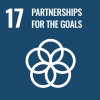IOM and the Ministry of Labour Launch the Business Guidebook: How to Mediate Employment Disputes under Thai Labour Law

Bangkok – On 17 September, the International Organization for Migration (IOM), in collaboration with the Department of Labour Protection and Welfare (DLPW) of the Ministry of Labour, launched the Business Guidebook: How to Mediate Employment Disputes under Thai Labour Law to support Thai employers in better fulfilling their legal obligations to provide remedies to migrant workers.
The Guidebook supports Thai companies across all economic sectors in ensuring respect for the human and labour rights of migrant workers through the provision of effective and migrant-centered remediation.
Ability to raise grievances and seek justice for any harms experienced is a fundamental right of every worker, regardless of their nationality. Corrective action to stop these harms and preventing them from occurring in the future is called remediation.
In Thailand, under the Labour Protection Act B.E. 2541, employers are obliged to provide remediation to all workers, including migrant workers, for any human and labour rights violations reported to the labour court or labour inspector. Despite this legal obligation, migrant workers continue facing challenges when reporting their grievances and seeking justice. This is partially due to employers' lack of knowledge of the available grievance mechanisms.
“This Business Guidebook provides an overview of the legal avenues to provide remediation to employers and workers and aims to better protect the rights of all workers, including migrant workers, under Thai laws. When employers utilize such remediation mechanisms, workers of all nationalities are better protected, and their human rights are respected, leading to an improved quality of life and good working environment. Consequently, it can bring sustainable growth to the company,” said Ms. Sopa Kiatnicha, Deputy Director-General of DLPW.
Ms. Siriwan Romchatthong, Secretary-General of the Employers’ Confederation of Thailand (ECOT), echoed DLPW stressing the benefits of utilizing remediation mechanisms outlined in the Business Guidebook. “The Guidebook will support employers to prevent and resolve conflicts within their business operations. As a result, employers and migrant workers can retain a good working relationship,” she added.
Under Thai legislation, there are alternative dispute resolution (ADR) mechanisms that can serve as an alternative to legal action in employment-related disputes. They usually involve a neutral third party who seeks to assist employers and workers in reaching an agreement tailored to the needs of both parties. ADR mechanisms can help migrant workers in receiving fair and effective remedy while at the same time relieve employers from some of the costs involved in litigation including financial expenses, time and publicity.
Ms. Geraldine Ansart, Chief of Mission at IOM Thailand noted that ADR mechanisms are only effective if the interests of both sides are safeguarded. “To guarantee this protection, the system needs to ensure that workers and employers both participate on an equal footing,” she added.
Access to effective remedy as it relates to the decent work and safe migration agenda is a commitment of the Royal Thai Government under the Global Compact on Migration endorsed in 2018. It is also a key principle of the United Nations Guiding Principles on Business and Human Rights, an international framework on responsible business conduct guiding the first National Action Plan on Business and Human Rights adopted by Thailand in 2019, which is currently being implemented by key Ministries.
The launch event of the Guidebook brought together over 78 participants representing Thai businesses, associations and civil society organizations. It was organized with financial support from the Laudes Foundation and the Swedish International Development Cooperation Agency (Sida).
This initiative is part of IOM's Corporate Responsibility in Eliminating Slavery and Trafficking (CREST) and Corporate Responsibility in Eliminating Slavery and Trafficking in the Fashion Industry (CREST Fashion) initiatives.
Download the Business Guidebook here:
English: https://bit.ly/36fOg5d
Thai: https://bit.ly/3CjmNxb
For more information, please contact Ms. Panitee Nuykram at pnuykram@iom.int or Ms. Aleksandra Lasota at alasota@iom.int
IOM's Corporate Responsibility in Eliminating Slavery and Trafficking (CREST) funded by the Swedish International Development Cooperation Agency is a regional partnership initiative that aims to realize the potential of business to uphold the human and labour rights of migrant workers in their operations and supply chains.
IOM's Corporate Responsibility in Eliminating Slavery and Trafficking in the Fashion Industry (CREST Fashion) funded by the Laudes Foundation partners with multi-national enterprises and local companies operating in South Asia and Southeast Asia's apparel and home textile supply chains to promote responsible business conduct in line with the United Nations Guiding Principles on Business and Human Rights (UNGPs).
























